Pro-Maduro state media outlets outperform others online discussing failed Venezuela operation
Other news outlets found less success
Pro-Maduro state media outlets outperform others online discussing failed Venezuela operation
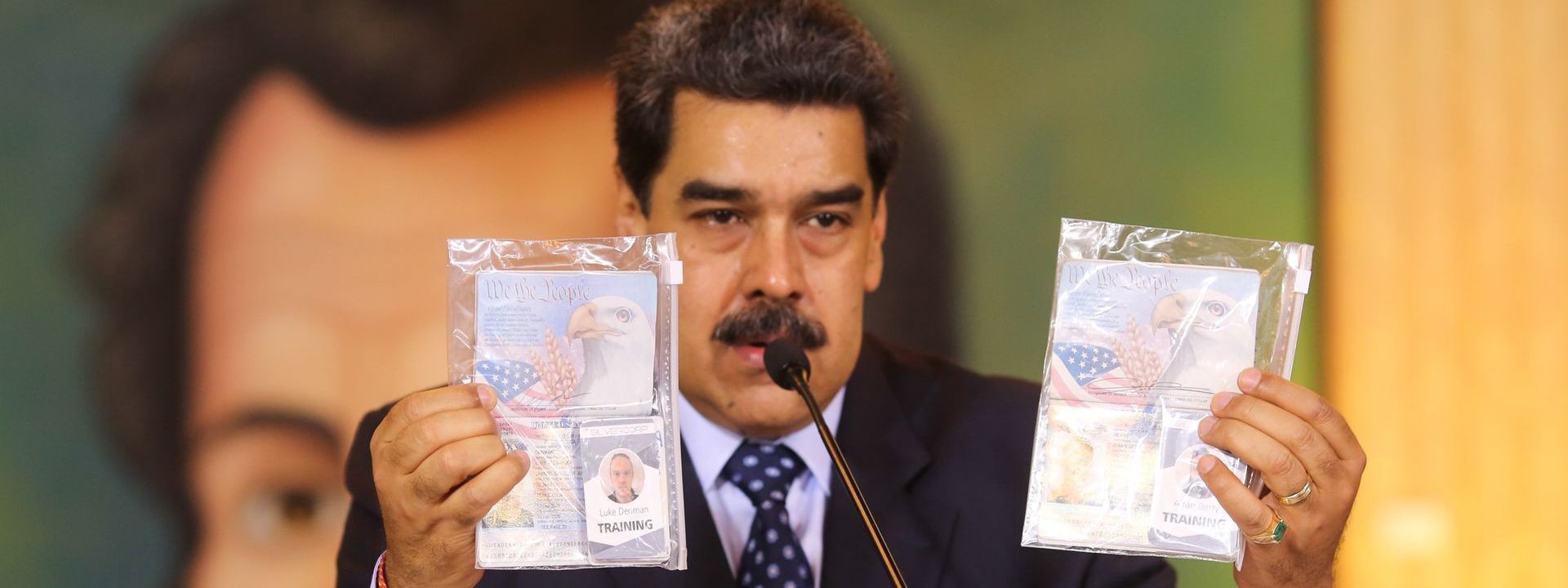
Other news outlets found less success in terms of social media engagement
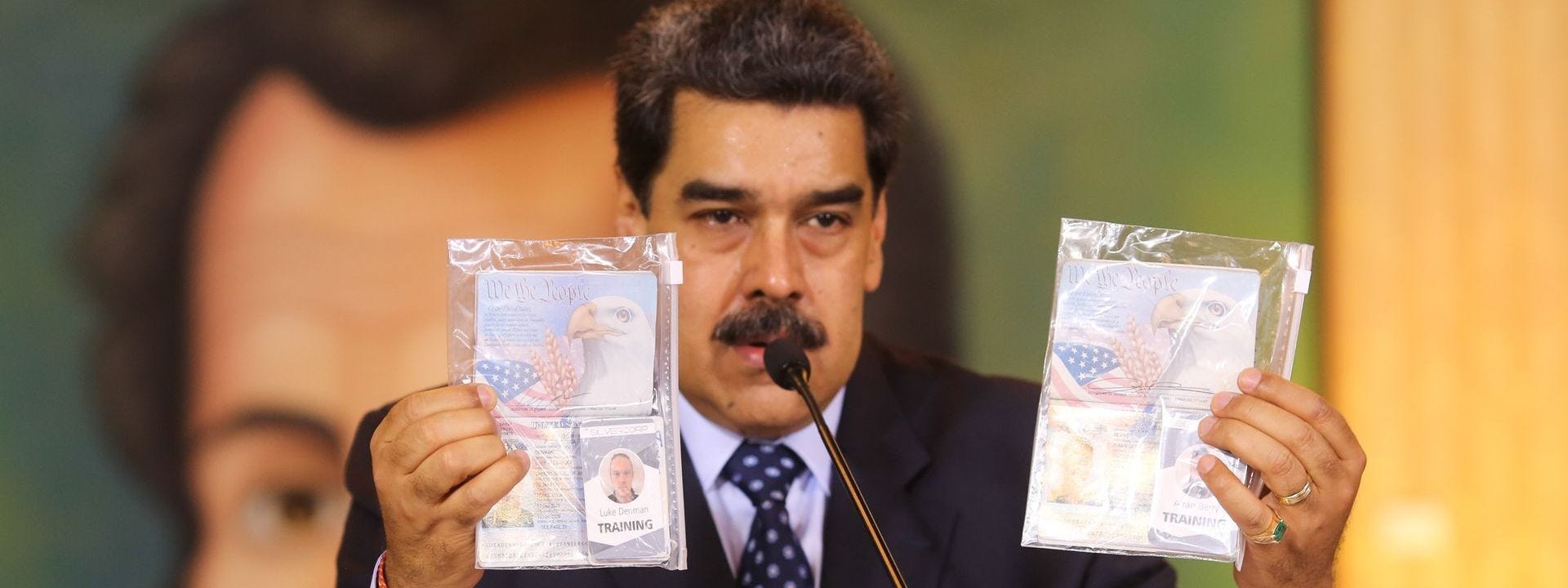
Articles by state and pro-state media from Russia, Iran, Cuba, and Venezuela outperformed other sources in terms of social media engagement when discussing a failed attempt to oust Nicolás Maduro on May 3, 2020.
The foiled operation was organized by former Green Beret Jordan Goudreau; two U.S. nationals were arrested by the Maduro regime as a result. The failed attempt has been compared to the 1961 Bay of Pigs invasion in Cuba, the U.S. government’s botched operation to oust Fidel Castro in Cuba. Despite the parallels between the two, at the time of publishing there was no indication that the United States government participated in the plan to oust Maduro.
Still, the news about a failed invasion involving Americans attracted a lot of attention on social media, especially from pro-state media outlets of countries that ally with the Maduro regime. These outlets took more of an interest in the events than did U.S. outlets, publishing a greater number of articles in the week after the failed plot.
An analysis by the DFRLab of 7,358 articles published between May 1 and May 8, 2020 showed that the most engaged-with outlet was the Spanish version of the Kremlin-funded RT. Others included the Russian state-backed NewsFront, the Iranian HispanTV, and the pro-Cuba CubaDebate, as well as Venezuelan state broadcaster Telesur and pro-Maduro La Iguana. Most of these interactions were Facebook engagements such as likes, comments, and shares.
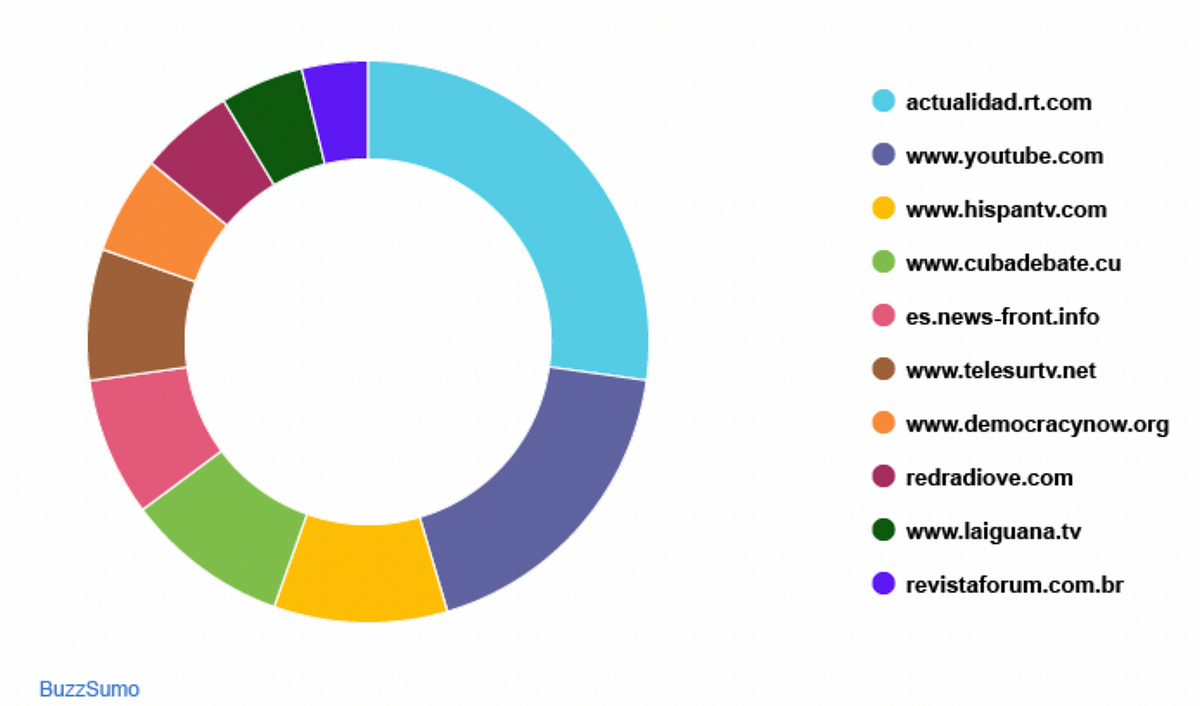
These outlets also published more articles about the foiled attack than U.S. media did. La Iguana published 145 stories — far higher than the other outlets, which published on average 17 articles about the operation. In comparison, the average number of published articles about the attempted invasion was 12 among CNN, The New York Times and AP, which broke the story.
Still, the average engagement per article of the Maduro-aligned media outlets was higher than for U.S. mainstream outlets, indicating that the former gained more online traction and played an important role in shaping the debate.
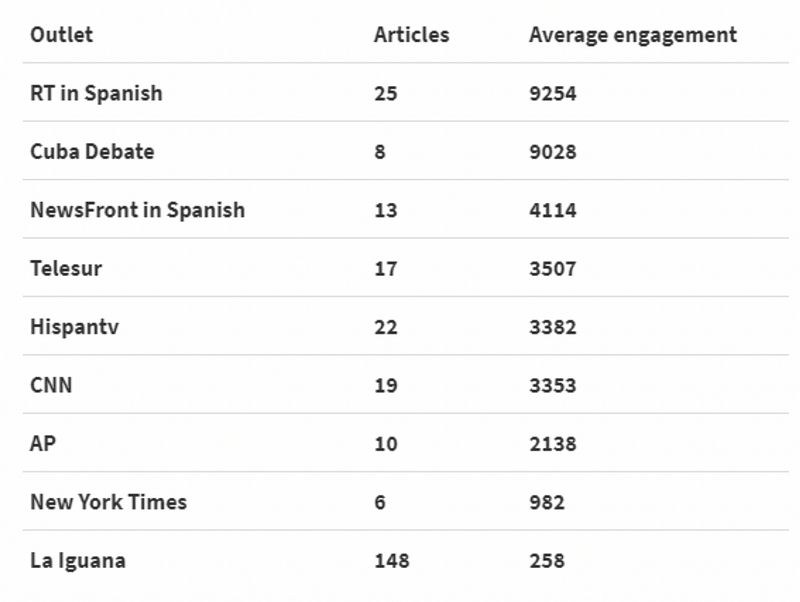
Top articles
The failed raid to oust Nicolás Maduro, known as Operation Gedeon, was first reported by the Associated Press on May 1. As of May 8, eight men had been killed and 17 detained by the Maduro regime security forces. The regime blamed Juan Guaidó — recognized as Venezuela’s interim president by some 60 countries — as well as the United States and Colombia for the coup attempt, all of which denied the accusations.
Jordan Goudreau, the ex-Green Beret, said he had signed a contract with Guaidó — a claim that Guaidó rejects — but says he was not paid. Goudreau said he decided to continue the operation with the services of his company, Silvercorp USA. Maduro forces identified two U.S. citizens and a Venezuelan working with the Drug Enforcement Administration (DEA) among the detainees.
The most-engaged article about the failed invasion was RT’s “Venezuelan government frustrates attempt of ‘naval invasion’ coming from Colombia.” It highlighted that the attempt happened almost one year to the day since Guaidó tried to oust Maduro on April 30, 2019. The article quoted Néstor Reverol, Maduro’s interior and justice minister, who said, “It looks like the frustrated imperial attempt to defeat the legitimately constituted government directed by Nicolás Maduro, dragged them into excessive actions.”
Among the 10 most engaged articles, three were from RT; besides the article quoting Reverol, one piece reported on a threat made by Silvercorp’s Twitter account against an RT journalist, while the other republished the statement of one of the Americans involved, who had said that the goal of the operation was to kidnap Maduro and take him to the United States.
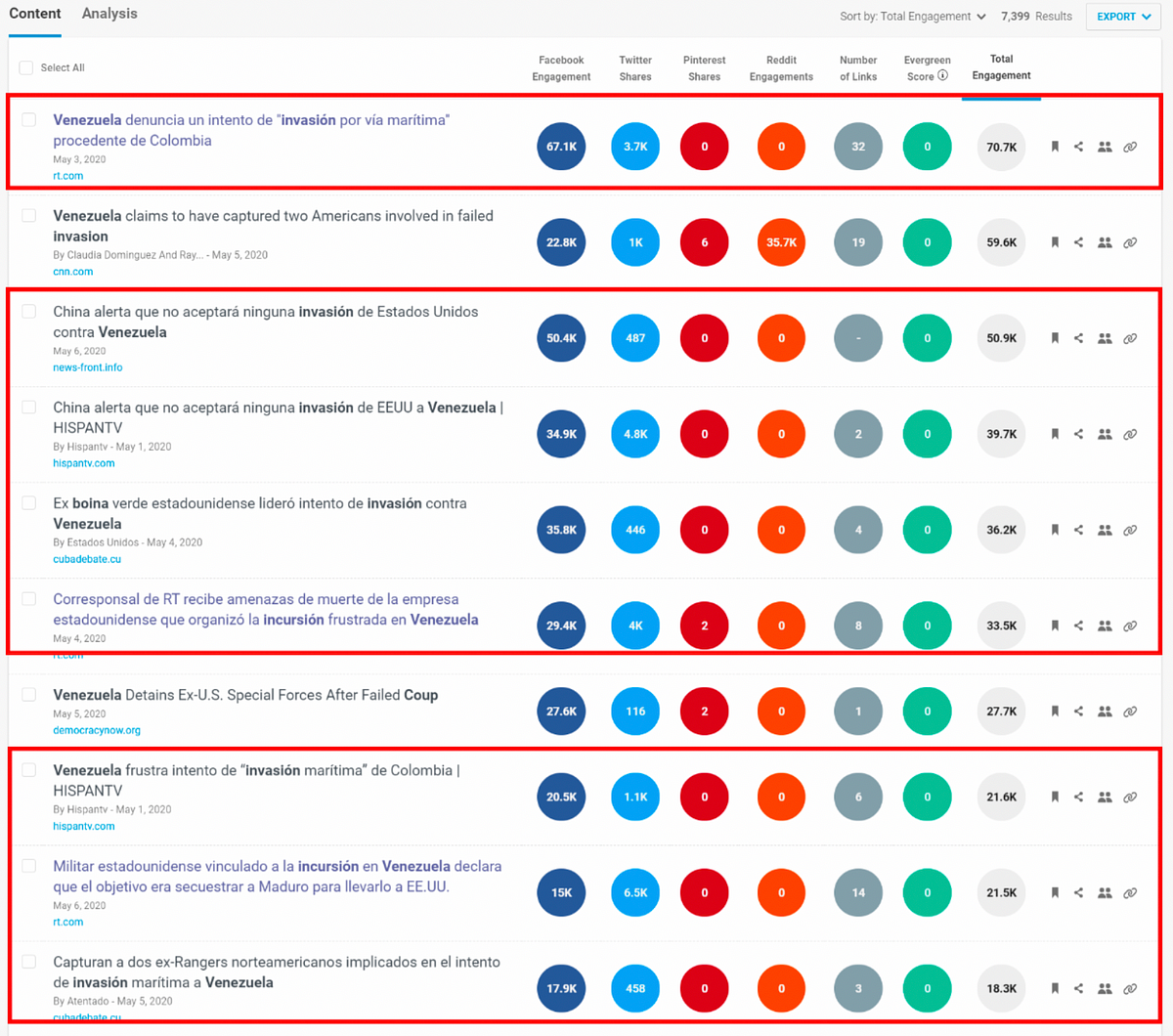
Pro-Kremlin outlet News Front, recently a subject of a Facebook takedown investigated by the DFRLab, also appeared on the list, as did two articles from the Iranian state media outlet HispanTV and another by the pro-Cuba website CubaDebate. Most articles emphasized the participation of Americans in the plot; two discussed China’s statement that it would not accept a U.S. invasion of Venezuela.
Articles published by the Spanish version of RT were amplified by the outlet’s own Facebook page, which has 11.6 million likes, twice as many as the English version of RT on Facebook (5.7 million).
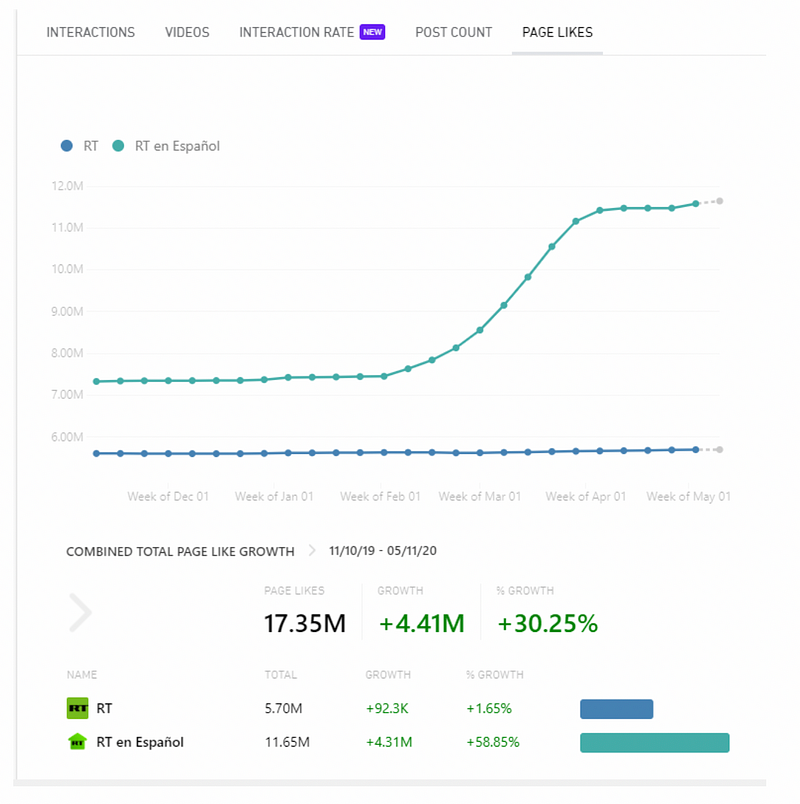
For the other pages, pro-Maduro groups and pages were the main amplifiers. Among the pages and group sharing articles about the incident were “Vladimir Putin, the best president of all time,” “The troops with Maduro,” and “Latin American Socialism.”

These findings demonstrate how global geopolitical context affects the flow of information. Although it is common to think about the global competition for information in terms of the fight over disinformation between democracies and non-democracies, it manifests in other ways. In this case, it manifested not as the spreading of false and discrediting information, but as a form of agenda-setting, in which outlets report real information but pick and choose which topics they report on and how much coverage they devote to it, based on the strategic interests of countries that sponsor them.
Luiza Bandeira is a Research Associate, Latin America, with the Digital Forensic Research Lab.
Follow along for more in-depth analysis from our #DigitalSherlocks.

